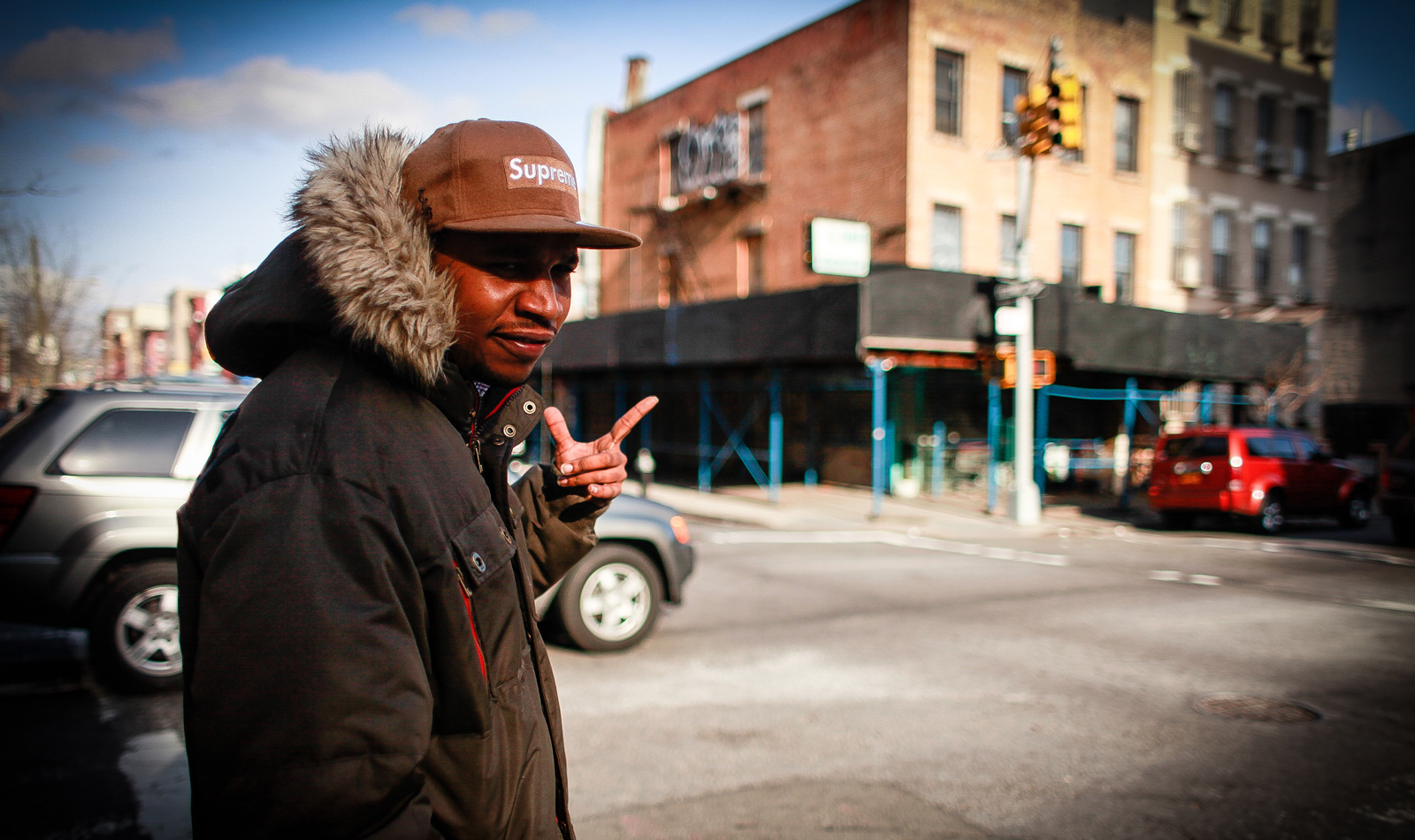 Photo by Ashes
Photo by Ashes
When legendary DJ Frankie Knuckles moved from New York to Chicago in March 1977, his arrival set in motion a series of events that would change the course of dance music forever. By now, the story of how house music was born in Chicago has been well and widely told. During his five-year residency at The Warehouse at 206 South Jefferson Street, Frankie’s colorful blend of Philly soul, underground disco, and European electronic music inspired a generation of Chicago DJs and producers. Armed with drum machines, synthesizers, and tape recorders, the first generation of house artists set out to reinterpret the sounds they were hearing at the club in their bedrooms. Mimicking disco’s unstoppable beat and majestic string arrangements with electronic instruments, Chicagoans wrestled the production of dance music away from the studios. Chicago house music not only gifted the world with a new sound, it played a vital role in democratizing the very way that dance music was made.
The evolution of Chicago dance music doesn’t end with house. Acid, deep house, ghetto house—Chicagoans have given the world endless new permutations of electronic dance music. The newest link in this grand continuum, the music that we’d come to know as footwork, first emerged in the mid-to-late ‘90s. Over the years, a battle-oriented dance culture evolved alongside the music. As DJs pushed the tempo of footwork or “juke music” up into 160+ BPM territory, the movements of the dance grew faster and more complex. As has always been the case in Chicago, the music and the dance were mutually dependent.
At a young age, Rashad Hanif Harden (aka DJ Rashad) was a scion of Chicago’s rich dance and DJing scene. His evolution from spinning at area roller rinks and teen parties to becoming a globally beloved figure is one of the most remarkable stories in contemporary music. But Rashad’s life and his legendary run were tragically cut short when he passed away on April 26, 2014 at the age of 35. Rashad’s death came as a shock, not only for its suddenness, but in the cruelty of a life lost at such a young age. Rashad’s passing came nearly six months to the day after the release of his magnum opus, Double Cup. With its skittering, double-time rhythms, mammoth bass, and lush soul samples, the album distilled decades of Black Chicago’s musical lineage into a daring collection of tracks. Tunes like “Last Winter” mines the deepest emotional depths of dance music by submerging a heart wrenching vocal sample from Stevie Wonder’s “Superwoman (Where Were You When I Needed You)” within a luminous ocean of synths. Tunes like “Leavin” (feat. DJ Manny) and “Only One” (feat. DJ Spinn and Taso) occupy a sonic terrain all their own, marked by Rashad’s signature pitched vocals and chopped electric piano chords. On the occasion of Double Cup’s 10th anniversary reissue, we’ve reached out to some of Rashad’s closest fam and collaborators to get a sense of how this seminal release was created and its connection to the sound and culture of Chicago dance music.
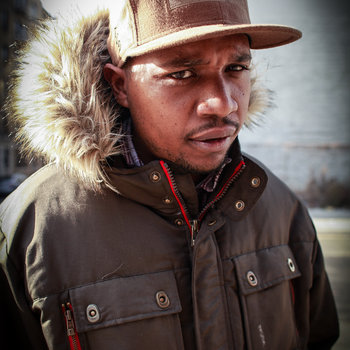
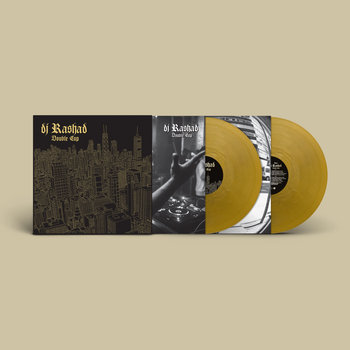
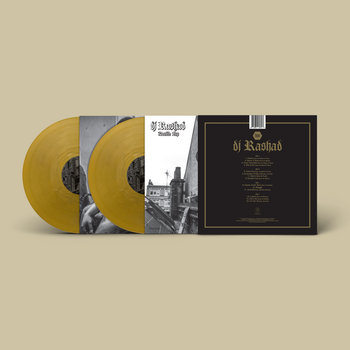

Vinyl LP


The Foundation: House Music in Chicago
RP Boo: When house music first blew up in Chicago, it was something fresh and new coming out of the era of disco. We just looked at it as something new, but we didn’t know about what was really happening. It was like a breath of fresh air, you seen a lot of people dancing outside, having they boombox. People was recording mixes off the radio and playing them back. The special part about it was around 1983/84, that’s when we started hearing songs like [Chip E.’s] “Time To Jack” and “It’s House.” These was tracks that was being played on WBMX.
DJ Spinn: Growing up in the Midwest, it was house music—a lot of house music. We grew up on everything in the MTV era: Boy George and New Edition; Michael Jackson and Sting and all that; and also hip-hop. But once we started going to the skating rinks—every skating rink out here has a disco side for dancing. So, every disco in the early ‘90s, they was playing house music, ghetto house music. So that was the roots right there that got everybody inspired. A lot of the skating rinks, the rec centers, and stuff like that—it was a lot of house music, ghetto house music coming up.
I met [Rashad] in a couple different dance spots at the time. There was teen clubs going on, and a spot called Jubilation, and Markham Roller Rink. That’s when I seen bro DJ on a Friday night—’cause that wasn’t a popping night, but we would just go up there to practice and [Rashad] was up there DJing I watched him mix two records, then come down and dance while these two records is blending perfectly. After that, I’d just see him around. It just so happened that my last name Harper and his last name Harden, so we had homeroom together.
Evolution: From House to Ghetto House to Footwork
RP Boo: In the early ’90s, it was a lot of underground parties. A lot of DJs that was producing these tracks was being played on college radio stations like WKKC. It was still house music, but it was their own twist and their own production. DJ Clent put together a crew called Beatdown which was DJ Clent, Magic Mike, myself, and DJ Rashad. Me and Rashad had more leverage because we was DJing for [legendary Chicago dance crew] House-O-matics. We started DJing for them outside of Chicago in the south suburbs of Harvey, Illinois. At that time, we was really in the groove of making our own tracks but paying homage to those that came before us in the house scene and the ghetto house scene.
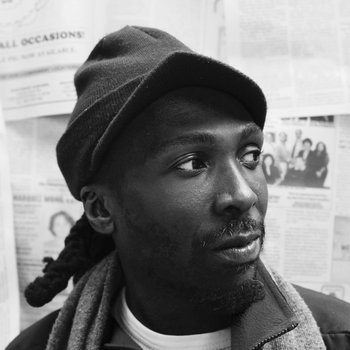
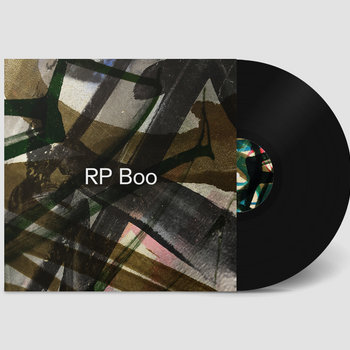

2 x Vinyl LP

DJ Spinn: [The music] emerged from house music to techno and then ghetto house. About ‘93, there was a change. I don’t know what happened, but the tracks was changing, and a lot of ghetto music was coming out. A lot of anthems from DJ Deeon, DJ Milton, DJ Slugo. It was a lot of DJs, a lot of producers that was coming with heat back then. A lot on Dance Mania Records like Gant-Man, PJ (aka Paul Johnson), Jammin Gerald, DJ Funk, Waxmaster Maurice, it’s just too many names. It was just like an explosion of ghetto house music and we was dancers.
GhettoTeknitianz to Teklife
DJ Spinn: Before Teklife, we was a crew called Ghettoteknitianz started by me and Rashad. Basically, we had an opportunity to put out records in like 2003 with DJ Godfather from Detroit. He had a label called Juke Trax. What we didn’t know at the time, but what we found out in real time, was that Detroit was real heavy on playing ghetto house music and Chicago-style music. Whereas Chicago wasn’t playing Chicago music, especially at the pace that Detroit was playing it. The first time I went to Detroit with Rashad, Boogie and couple other guys, we out there and all I hear is “Woo, where the rats/ Woo, where the rats” [from DJ Slugo’s ghetto house classic “Where The Rats”], West Side style, 45 [“West Side style” refers to the way DJs on the West Side of Chicago would play 33rpm 12-inches at 45rpm —ed.]




Vinyl LP


I say, ‘Man, what mixtape y’all playing? They say, ‘Bro, this the radio. We in The D.’ ‘Say what? This what they playing in the D?’ So that was our introduction. They really rocking with Chicago. At that time, we ain’t really have a name, and we was doing what we still considered ghetto house. Once the MySpace era kicked in about 2007, ‘08, it was this big controversy of people stealing our music and sharing it. At the same time, it was a lot of people that was claiming Ghettoteknitianz, just fake claiming our crew. And we was like, ‘Yeah, we finna switch it up to Teklife.’

The World Outside Chicago
DJ Spinn: Me and Rashad did some out-of-town raves in Seattle. And that was like the first time we went outside of the Midwest. Rashad went out there first, then I went out there second. And we started meeting like a lot of people through the internet. We met this young guy by the name of Neema Nazeem. He went to Loyola in the city up north. And he was one of them dudes that was all on these blog sites, like this site called The Census. And he was just hearing our name, and footwork, and all this music. And people was talking about footwork. Neema was actually the person that opened our eyes up to the fact that the world was in tune.
I think I got like a hundred thousand plays on MySpace. People in France and Germany, all over Europe and these other places was really messing with the music. Neema had the idea of coming up with a record label and putting out some of our material. [Which eventually became Ghettophiles —ed.] This was like ‘09. We put out some records with him, and he was getting us some looks overseas, and people was contacting him about our music. So by the time 2010 came, he ended up booking us some shows out there in Europe.
Recording Double Cup
DJ Spinn: So, at that time, we had a few releases out. Rashad had a few releases out. I had a release out with Planet Mu, we was on the Bangs and Works compilation. Rashad had a few EPs out, and I transitioned over from Planet Mu to Hyperdub. We knew we had to come with it. A lot of them tracks [on Double Cup] was tracks that we already had, and we revised them. I wanna say it probably took us seven, eight months to put all that stuff together. For the majority of the stuff that me and Rashad was on, we either did it right here in my studio or we did them at Taso’s.
Taso: I met Spinn first in the city. I was messing around with [Detroit ghettotech pioneer] DJ Assault. When I was a young child, this dude was my idol. So there I was, like 23, 24, just making tracks all of a sudden with Assault. The next time he came through, Spinn played with him, the promoter introduced me, and then Spinn came to [legendary San Francisco recording facility] Hyde Street Studios. I made a beat in front of him in like 15 minutes, front to back, and he made me part of the crew.


Vinyl LP


But then, the next time Spinn came, he brought Rashad. And it was amazing. I was waiting to see them DJ, and they were late driving from L.A., so somebody comes up to me, and he’s like,’ Yo, you have to DJ.’ And I’m like, ‘I ain’t got no tracks.’ And one of the homie’s like, ‘I got all your tracks.’ So, I jump on to play, and then I just look left, and I just see this big motherfucker come down these stairs, like literally steamrolling people out the way. It was Rashad. And then behind him, I see Spinn. Rashad comes up like, ‘You ain’t using headphones?’ I’m like, ‘Nah,’ and he asked, ‘Is this your track?’ He’s like, ‘You [Tek]Life, bro. Oh, you Life.’
And then they pushed me out the way and just merked his set. Afterwards, we walked up the street to my old crib on 7th & Mission, and they took a look and said, ‘This is where we’re gonna come back and work.’ And then in 2013 they would just come and visit and stay for a while. Most people come for three days? These motherfuckers would come for like three weeks. And we were just like a big family. I could imagine being in Army barracks with these motherfuckers, ’cause it just felt like that. One person would be sleeping and resting, the others were working. When we did ‘Pass That,’ this motherfucker [Rashad] was making polyrhythmic, boom bap, bossa nova kick progressions. And then we added the pad, and we added the Kool And The Gang synth that I always do. That Octave run, “Summer Madness”/”Winter Sadness.” Once we wrapped that song, we drove a half a tank of gas around the whole city just playing it and smoking weed.
The Impact of Double Cup
RP Boo: I didn’t know Double Cup was coming into existence until early 2013. Rashad was coming off tour, and I get a call from him. He said, ‘I’m doing a weekend [of gigs] in Chicago. I’m doing Boiler Room as well as Pitchfork Festival.’ He asked me to come by and join him in the session and, he would pay me to play alongside him. I told him, ‘You don’t have to pay me.’ It was an honor. I didn’t end up going to Pitchfork, but that Friday, he did Boiler Room. It’d been almost a year and half since I’d seen Rashad, but I could always talk to him through email or telephone. As he’s playing these new joints it was like, ‘What is this he’s playing?’ This man’s style has totally flipped the script and went its own way, but super dynamic. He was actually debuting tracks from Double Cup.
The Legacy of DJ Rashad
Taso: I got the call on my birthday, in Amsterdam. I was touring Europe for my first time when I was like 25, 26. And I remember talking to him throughout the whole tour. He was in South America with Machinedrum doing something in Brazil, then he was stateside, and blah, blah, blah. I’m over here in Copenhagen, and Teklife was starting to happen for me, you know? I just finished a little set party. It was dope. And a blogger called me on Skype. And he’s ‘Hey, I’m just calling to confirm the death of Rashad Harden.’ I’m just like…click. I was just like, get the fuck off my line, G.
DJ Spinn: It was devastating. Even, you know, to this day, it hurts. But I’m finally one with it, and it’s like he’s still with us. He was supposed to be in Canada with me, and he got denied entry or something like that. When we was going through the gate, he called me like, ‘Yeah, I ain’t gonna make it to Canada, bro. Kill that show. I’m either gonna see you in Detroit or back at home.’


Vinyl LP


Taso: They lied to us and said that time heals wounds. With body and soul, time can actually make wounds worse. It’s about using that time as well as you can, and honoring them, and not crying. It’s better to laugh than to cry, my mom says. So I just try to look at it from that angle and not let it down me. We have full control over grieving. We choose to grieve as human beings.
RP Boo: Rashad’s legacy has grown, and it’s growing bigger. I miss talking to him. I miss being inspired by him as he was inspired by me. Rashad lives on through a lot of people, through his son, Chad, through the members of Beatdown. And as I tour, I meet a lot of his fans that still talk about his production and what he meant to them. Peace to DJ Rashad and his family. Rashad will still be carried on in the afterlife.







